UWE Bristol to help protect threatened forest in Madagascar in £800k project
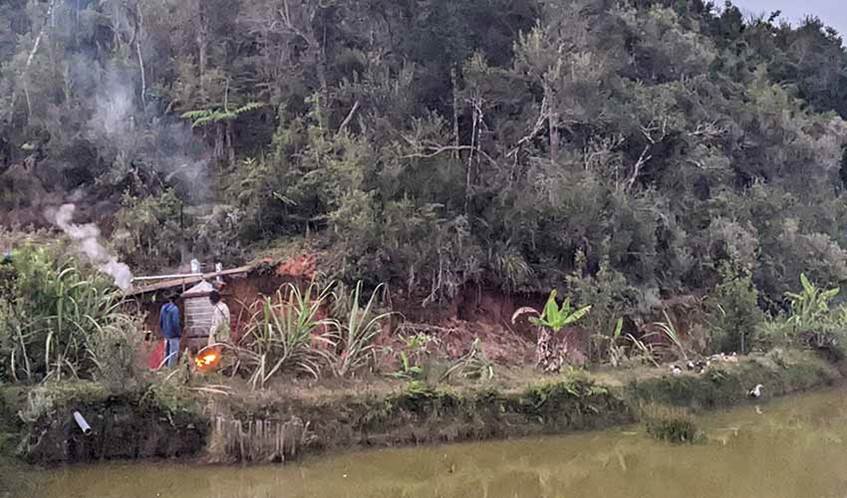
UWE Bristol is a partner in a groundbreaking project awarded almost £800,000 in funding to protect one of Madagascar’s most precious and threatened forests.
The University is a key academic and implementation partner on the project focused on the Tsinjoarivo-Ambalaomby Protected Area (TAPA) in Madagascar’s Central Highlands, a biodiversity hotspot facing deforestation rates nine times higher than the Congo Basin.
Coordinated by the Malagasy-led non-governmental organisation Money for Madagascar, the project brings together a consortium of international experts, including UWE Bristol, Malagasy conservation organisation Sadabe and the Regen Network.
The initiative, ‘Locally Led Environmental Stewardship to Protect Madagascar’s Forests and Communities’, will run for five years and will involve working closely with communities living in TAPA.
It has been funded by the UK Government through the Darwin Initiative, a grants scheme that helps protect biodiversity and the natural environment in developing countries.
Dr Mark Steer, Associate Professor of Conservation Ecology at UWE Bristol, said: “This funding is a testament to the power of collaborative, evidence-based conservation. We are not just planting trees; we are helping to build a sustainable economic model where protecting the forest provides tangible benefits for local people.
“Our role at UWE Bristol will be to ensure the project’s impact is rigorously measured using advanced monitoring techniques, from drone surveys to bioacoustic analysis, providing the verified data needed to attract long-term investment.”
Without intervention, the forest being supported - home to critically endangered lemur species such as the Diademed Sifaka and Sibree’s Dwarf Lemur - is predicted to disappear within 20 years. The project will address the root causes of its problems by empowering local communities to become environmental stewards through an innovative scheme that links conservation directly to sustainable livelihoods.
The project will establish an ‘Environmental Stewardship Scheme’ co-produced with local communities. Farmers will be rewarded for implementing regenerative agricultural practices and forest restoration, funded through the sale of high-integrity biodiversity and ecosystem credits to global impact investors.
Project activities will include providing training for 1,000 farming families in climate-smart, regenerative agriculture to improve food security and reduce pressure on forests; co-creating a ‘menu’ of wildlife-friendly options and allied payments with local communities and restoring 800 hectares of degraded land within the buffer zone through reforestation and agroforestry.
Dr Steer, who said students and academics from UWE Bristol had been working alongside Sadabe in Madagascar since 2015, added: “This project is a fantastic example of UWE Bristol’s commitment to research with impact. It combines our expertise in environmental monitoring with a deep commitment to social justice and poverty reduction, creating a blueprint for conservation that can be replicated across Madagascar and beyond.”
The Darwin Initiative is one of the UK government’s flagship Biodiversity Challenge Funds, and awards grants that enable low and middle-income countries to conserve their unique biodiversity, reduce poverty and address climate change.
Announcing successful projects in the latest funding round, including initiatives across Africa and in Latin America and Myanmar, Chair of the Darwin Expert Committee Noëlle Kümpel said: “We received a record number of applications for this funding round, demonstrating how valued the Darwin Initiative is around the world. This made for some difficult decisions for the Darwin Expert Committee but this means that these successful projects are of a particularly high calibre, clearly demonstrating the need for them and the impacts they will have on biodiversity conservation and multidimensional poverty reduction on the ground.”
Related news
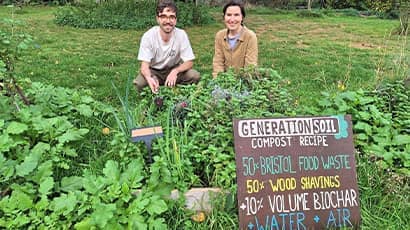
27 January 2026
From scraps to soil: the UWE Bristol alum transforming campus food waste into fertile compost to feed university garden
A UWE Bristol alum has gone back to his roots to transform food waste from his former university into living, nutrient-rich compost to feed back into its student and staff-run Community Garden.
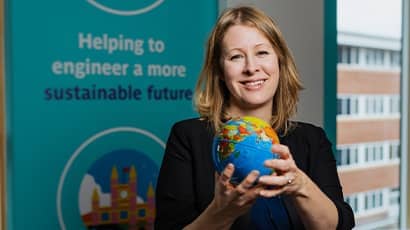
20 January 2026
UWE Bristol becomes South West Regional Hub lead for national Climate Ambassadors scheme
UWE Bristol is the new regional hub lead for the Climate Ambassadors scheme, a national initiative helping to drive the development of climate action plans in education settings across England.

15 December 2025
UWE Bristol rises eleven places in People & Planet University League
UWE Bristol has risen to 14th in the People & Planet University League (UK), a jump of eleven places.

12 December 2025
UWE Bristol’s environmentally conscious and student-focused accommodation wins three awards
Purdown View, the world's largest certified Passivhaus student accommodation development, has been recognised at Property Week Student Accommodation Awards.

20 November 2025
UWE Bristol ranked among top 12 per cent of universities globally for sustainability
UWE Bristol has climbed over 400 places in the QS World University Sustainability Rankings 2026, which evaluates universities on a range of environmental and social impacts.
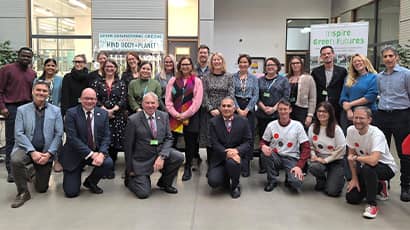
06 November 2025
UWE Bristol welcomes West of England Mayor for annual Green Week
Helen Godwin, Mayor of the West of England, visited UWE Bristol during its annual Green Week to see the sustainability-driven research, innovation and skills initiatives that are helping to power the growth of the region’s green economy.
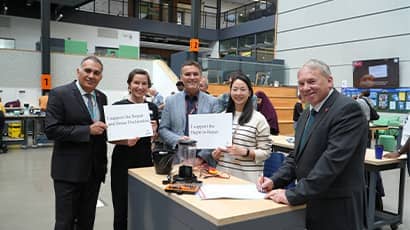
16 October 2025
UWE Bristol signs Repair and Reuse Declaration in commitment to sustainable initiatives
UWE Bristol is the first UK university to sign the Repair and Reuse Declaration as a whole institution, a call to legislators and decision makers to tackle climate change through greater repair and reuse support.

15 October 2025
UK food needs radical transformation on scale not seen since Second World War, new report finds
A new report from the Agri-Food for Net Zero Network+ finds urgent action on food is needed if the UK is to reboot its flagging economy, save the NHS billions, ensure national food security, and meet climate commitments.

24 February 2025
WESTbusStop+ makes sustainable travel more convenient
A new WESTbusStop+ bringing together buses and other ways to travel has been officially opened at UWE Bristol’s Frenchay campus.

03 January 2025
Big leap forward for environmentally friendly ‘e-textiles’ technology
Research led by UWE Bristol and the University of Southampton has shown wearable electronic textiles (e-textiles) can be both sustainable and biodegradable.

28 November 2024
Work of UWE Bristol academics features in Government report on air quality measurement
Two UWE Bristol academics have made contributions to an influential Government report on the measurement of air pollution.

27 November 2024
Traffic noise reduces the stress-relieving benefits of listening to nature, study finds
Road traffic noise reduces the wellbeing benefits associated with spending time listening to nature, researchers have discovered.
You may also be interested in

Media enquiries
Enquiries related to news releases and press and contacts for the media team.
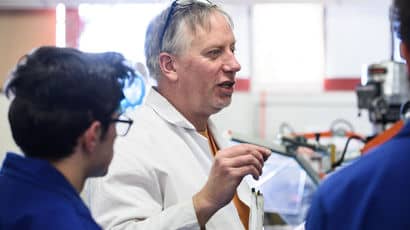
Find an expert
Media contacts are invited to check out the vast range of subjects where UWE Bristol can offer up expert commentary.
College of Health, Science and Society
The College of Health, Science and Society is a large, diverse and dynamic part of the University, bringing together experts from Health and Social Wellbeing, Applied Sciences, Education and Social Sciences






